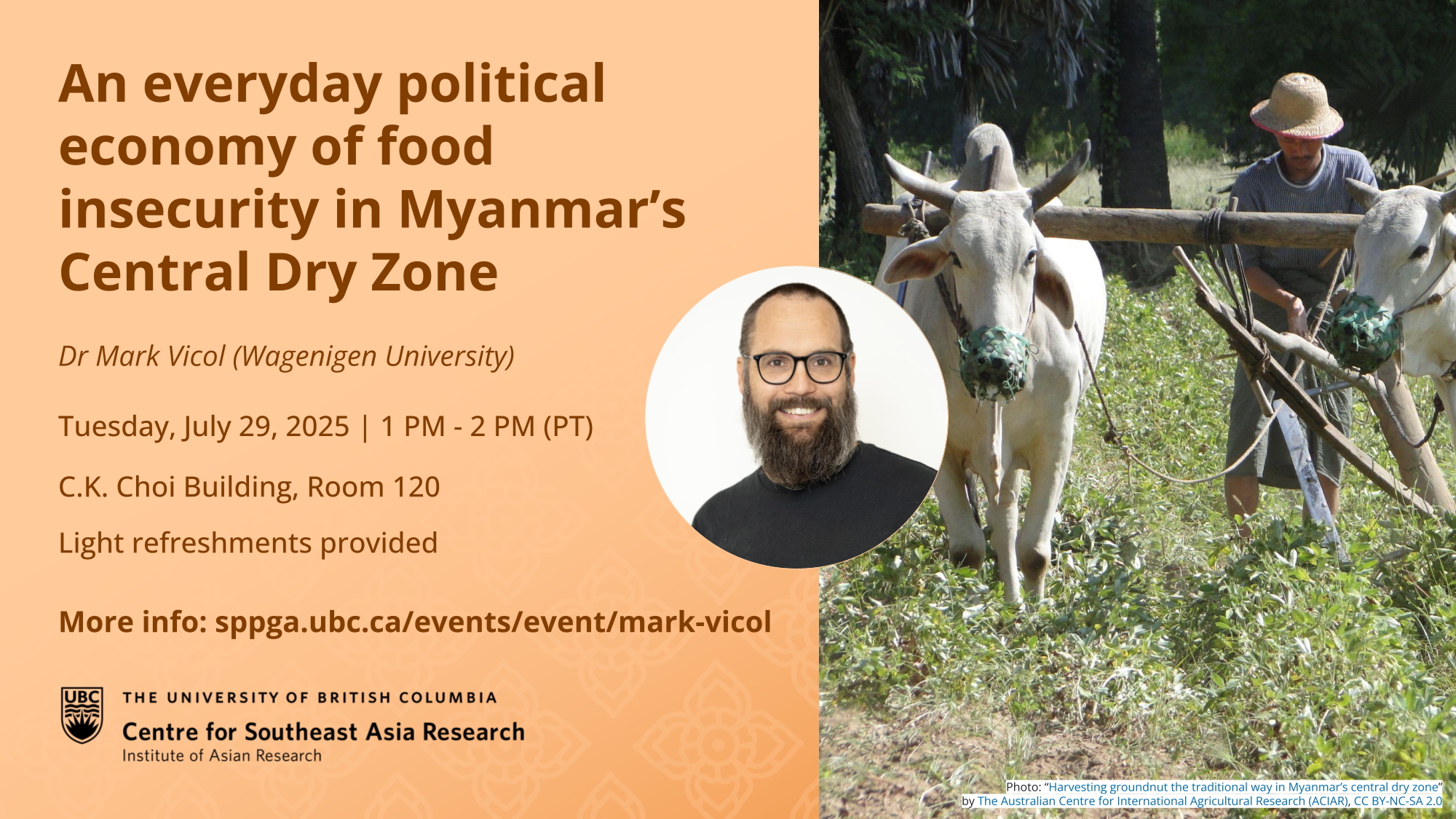Since the 1990s, there is an expansion of rubber plantation in Luang Namtha province in Laos and in Northern Shan State in Myanmar. Both are driven by increasing Chinese capital, but are arranged in a different way: Laos based more on small-holder production as well as contract farming arrangements, and in Myanmar, by economic concession. The paper utilizes what Li (2014) argues of the farmers’ choices limiting their own choice and living by a “dull compulsion”, as well as Rigg et al. (2016)’s discussion on vulnerability and precarity to analyze how the expansion of rubber plantation is shaping indigenous people’s access to land and to the market. The shift from subsistence upland cultivation to cash crops such as rubber and banana, as well as loss of land altogether in the case of Myanmar is increasing their dependence on agriculture wage labor. The paper echoes what feminist economists such as Deere (2005) noted as the feminization of agriculture wage labor. Deere (2005) pointed out that such independent income contributed to their improvement in decision making in the household. This paper argues that there are certain pre-requisites that are needed to achieve such translation of income into decision making. At the same time, there are cases where people are getting worse off with higher dependence on market and eating less food than before. The paper argues that different adjustment strategies are needed under different access to land and between women and men, and hence some group of women and men become particularly vulnerable in the process.
About the speaker
Kyoko Kusakabe is a professor at Gender and Development Studies and head of Department of Development and Sustainability, School of Environment, Resources and Development, Asian Institute of Technology, Thailand. Her research focuses on gender and labor migration, and women’s work in the informal economy. She has co-authored Thailand’s Hidden Workforce: Burmese migrant women factory workers with Ruth Pearson (2012, Zed Books), and co-edited Gender, mobilities, and livelihood transformations: Comparing indigenous people in China, India, and Laos with Lund, Panda and Wang (2014, Routledge). She is an associate editor of Gender, Technology and Development (Sage Publication).

